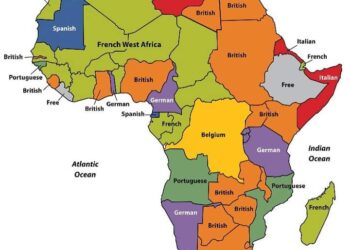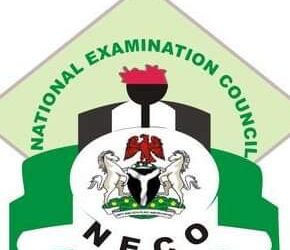Recently, the House of Representatives criticised the National Universities Commission’s accreditation procedure, describing it as being fraudulent ‘and riddled with favoritism. AUGUSTINE OKEZIE examines the issues at stake
The House of Representatives had faulted the procedure for accreditation of academic programmes of Nigerian universities by the National Universities Commission (NUC), insisting the procedure appeared to be “fraudulent” as it was designed to favor institutions willing to do the “bidding of the leadership of the NUC.”
In a resolution, the House also condemned the “imbalance” in accreditation of programmes and asked its Committee on Education to investigate the matter and determine whether Nigerian universities met the minimum standards of accreditation.
The House resolved to mandate the committee to determine whether or not the procedure for regulating Nigerian universities should be reviewed to enable Nigeria to meet international standard and then curtail the capital flight arising from Nigerians patronizing foreign universities.
A lawmaker from Lagos State, Mr. Abayaomi Abdul-Kabir, who moved a motion on the subject, said over the years, there had been allegations that the NUC favored particular areas while accrediting programmes. He told the House that programmes were accredited in many universities where there were no requisite facilities to support learning, while institutions that met the criteria were denied accreditation.
The lawmaker added, “The House is disturbed that the procedure for selecting accreditation officials lacks credibility and is biased in favor of only members of the academia capable of doing the bidding of the leadership of the NUC.
“The House feels that the process of accreditation ought to recognize some levels of performance, quality and integrity, which engender confidence from the public and the academic community
It also mandated the Committee to determine whether or not the procedure of regulating Nigerian universities should be reviewed to enable the country meet international standard of education and then curtail the capital flight arising from Nigerians patronizing foreign universities.
The motion which was brought to the floor of the House by Abayaomi Ayelo Kabir (Lagos) said that the Committee set up by the Federal Government in which the House was represented, carried out the (NEEDS) assessment of Nigeria Public Universities and identified numerous deficiencies in the university system.
The lawmaker, who expressed concern over the rot in the NUC as identified in the NEEDS Report, said that the procedure for selecting accreditation officials lacks credibility and was biased in favour of only members of the academia who are capable of doing the biding of the leadership of the Commission.
“I feel that the process of accreditation ought to provide a means of performance, quality and integrity which engenders confidence from the public and the educational community”, he stressed
Kabir further said that despite the educational sector obtaining the highest budgetary allocation in the 2013 Appropriation Act, Nigerians have not felt the impact of such allocation given the deteriorating quality of education in the country.
It will be recalled that the strike action recently embarked upon by the Academic Staff Union of Universities (ASUU) was premised on the poor state of infrastructural facilities in the nation’s universities.
Former Education Minister, Dr. Sam Egwu, it would be recalled, noted the essence of the combination of Programme and Institutional Accreditation, which h had insisted will no doubt, ensure a robust Nigerian ’’University Accreditation System as well as enhance the quality assurance process of the Universities, and the possibility of Nigerian Universities being ranked among the best in the world.
The former Minister further observed that the poor Performance of Nigerian Universities in the various global university rankings could be attributed to many factors other than noncompliance with data disclosure.
‘’The Universities, NUC, and Government have roles to play respectively in ensuring that Universities in Nigeria do well in World University rankings, Government will do everything within its powers to play its role in returning Nigerian Universities to the enviable heights that was the hallmark of University Education in Nigeria’’. Dr. Sam Egwu concluded.
While not holding brief for the National Universities Commission, one may not but disagree with the House on the issue of the oversight functions of the agency, especially in the area of institutions’ accreditation. This because the procedure itself and the constitution of the accreditation panels have always been made in such a manner as to ensure that the process and its outcome remain un-tainted and credible.
In the course of interacting with Proprietors of Private Universities, especially as it concerns institutional accreditation, they spared praises for the meticulous manner with which NUC carried out their inspection visits and the level on neutrality exhibited by the panels made up of eminent professors that have earned their integrities over the years.
NUC executive secretary, Professor Julius Okojie recalled the in- house NUC Colloquium in 2006 that discussed the introduction of Institutional Accreditation , which was informed by the fact that programme accreditation, which the Commission currently engages in, has limitations as far as the overall quality of the institution was concerned. According to the Executive Secretary, NUC believe the need for a transparent and consistent accreditation of University programmes to ensure efficiency and effectiveness.
In the words of Professor Chiedu Felix Mafiana, Department of Quality Assurance of NUC,’’ Accreditation, according to the laws creating the NUC, is a process whereby academic programmes are evaluated every five years, with the assessment criteria including the number of academics with PhDs and the infrastructure to accommodate undergraduate and postgraduate’s courses.
He further added that NUC’s accreditation team also establishes the number of students that may be admitted per programme.
The professor maintained that each programme that complies is entitled to full five-year accreditation, with those that fall just short of compliance being awarded partial accreditation of three years only.
‘’But programmes that fail to meet half of the criteria, especially in the area of qualified staff, are severely sanctioned’’. He added.



